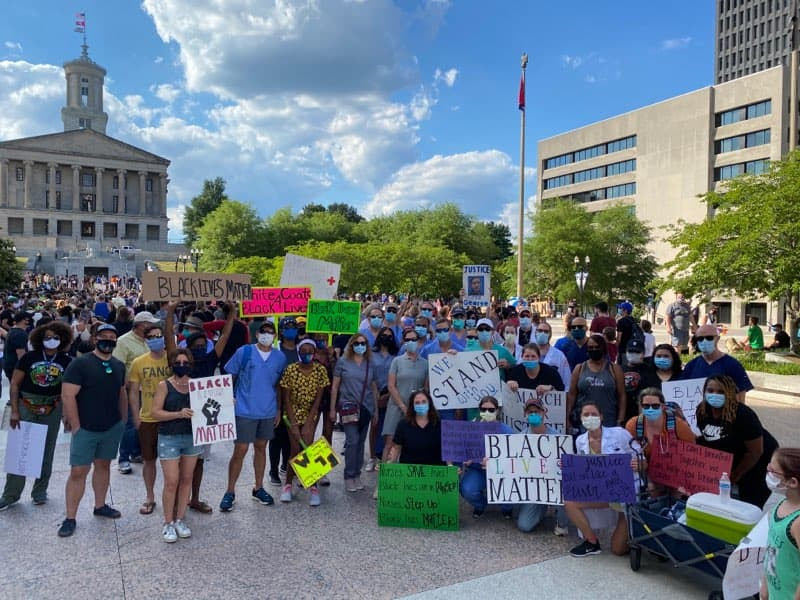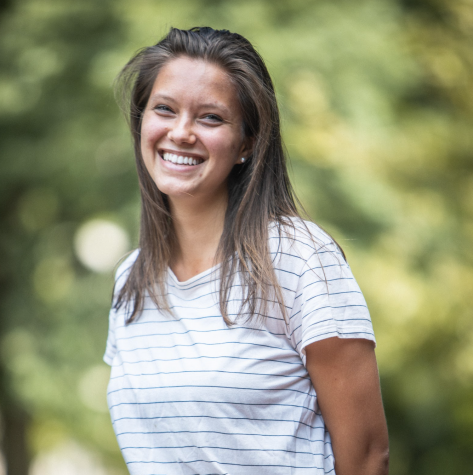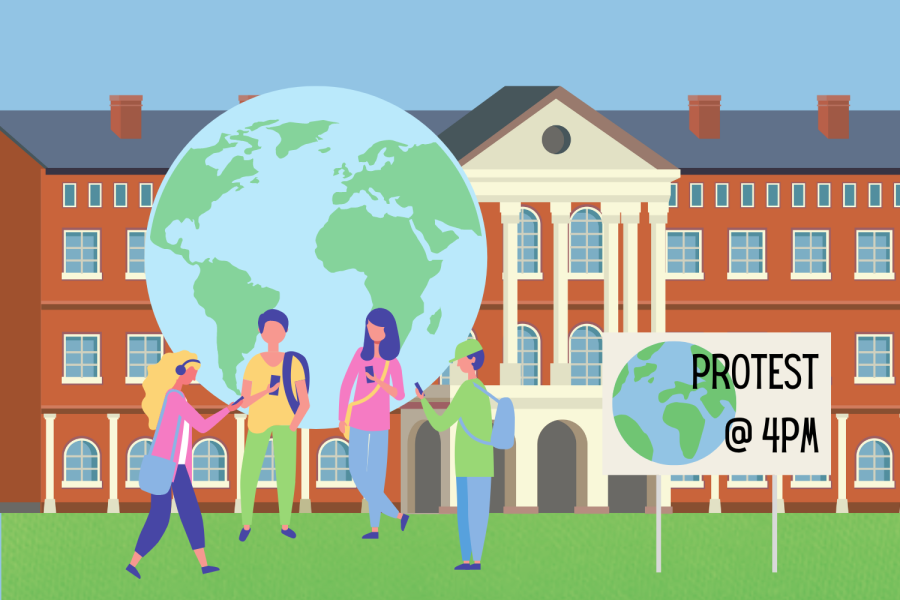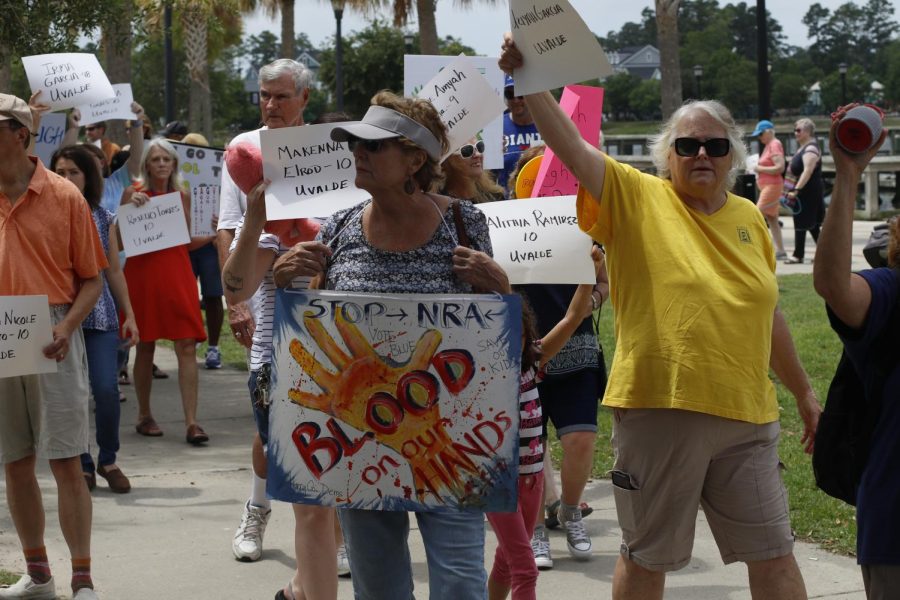An estimated 75 to 100 healthcare workers from the Nashville area marched in the White Coats March for Justice on Saturday, June 13, per march organizer Katlin Elrod.
The White Coats protesters joined thousands of others in downtown Nashville this weekend protesting police brutality against the Black community, including a Mamas for Racial Justice March and a BlackLivesMatter Made You Say It Protest earlier on the same day.
“Recently with this global health pandemic we have received so much support—from the community, from political leaders, from anyone just supporting us in our role in fighting COVID-19 and the pandemic that’s going on,” Morgan Rangel, one of the White Coats organizers, said. “We are very happy to shift that momentum that we have with the pandemic and shift it over to [the Black Lives Matter] movement.”
Rangel, a nurse in the Heart, VAD and Transplant Center at St. Thomas West Hospital, suggested organizing a march of healthcare workers after she attended a June 4 protest with fellow nurse practitioner Jessi Elrod and St. Thomas West cardiologist Don Chomsky. Rangel enlisted the help of Elrod’s wife, Broadway Brewhouse general manager, Katlin Elrod to increase awareness via social media.
According to Katlin Elrod, because of the logistical complications of organizing a protest from scratch, the organizers decided to join the March for Justice protest planned for June 13 and correspondingly named their gathering “White Coats March for Justice.”
“We wanted to form this around that idea that this is not for us, to make us look like something more than what we are,” Elrod said. “We are just here to support and learn.”
The Elrods, Rangel and Chomsky decided on Wednesday, June 10 to join the march planned for Saturday. They spent the next three days frantically spreading the plans via social media, personal contacts and word of mouth, Elrod said.
When they finally arrived at Legislative Plaza at 5 p.m. on Saturday, they had no idea how many healthcare workers would join them, Rangel said.
“We just started seeing people walking from the streets in scrubs and in their white lab coats,” Rangel said. “It was really exciting seeing them show up with their signs and ready to walk with us.”
The overall March for Justice, scheduled from 5 to 7 p.m. CDT, attracted thousands of people, and Elrod estimates that 75 to 100 healthcare workers participated. The group marched from Legislative Plaza, down Union St. to 2nd Avenue North, before turning onto Broadway. At 6th Avenue, the protesters knelt for 8 minutes and 46 seconds, marking the length of time former Minneapolis police officer Derek Chauvin kept his knee on George Floyd’s neck.
Many bars and honky-tonks stopped playing music or closed their windows, Elrod said, and the street was completely silent.
“As someone who’s worked on Broadway for three years, that was the quietest I’ve ever heard active Broadway,” Katlin Elrod said.
The protesters then walked up 7th Avenue back to Legislative Plaza where they had begun.
“There was always a somber tone through the crowd as well, because you’re actively protesting the fact that people are being murdered, systematically murdered,” Elrod said. “Not just by cops, but by their lack of healthcare, which is something that [the healthcare workers] all felt very closely.”
According to Chomsky, who completed his cardiology fellowship at Vanderbilt University Medical Center, the COVID-19 pandemic brought historical healthcare disparities among marginalized communities to the forefront in a new way.
“Once you start thinking about it, it’s present everywhere in medicine,” Chomsky said. “There’s [an] inability to get to doctors’ appointments if you don’t have the same access to transportation and insurance. It took something as dreadful as the pandemic to bring those sorts of issues to a broader audience.”
According to Chomsky, COVID-19 also complicates planning protests. While all the colleagues he spoke with supported the idea of a White Coats March, not everyone was comfortable participating due to Davidson County’s recent resurgence in COVID-19 infections. Still, Chomsky said he personally feels the benefits of marching outweigh the risks in this case.
“The bottom line is the timing is critical right now,” Chomsky said. “There’s momentum with this. These things frequently flare up, and then they die down. It just seemed so critically important to provide that support now and not defer it to some later date when it seems safer. We can’t let this die down.”






